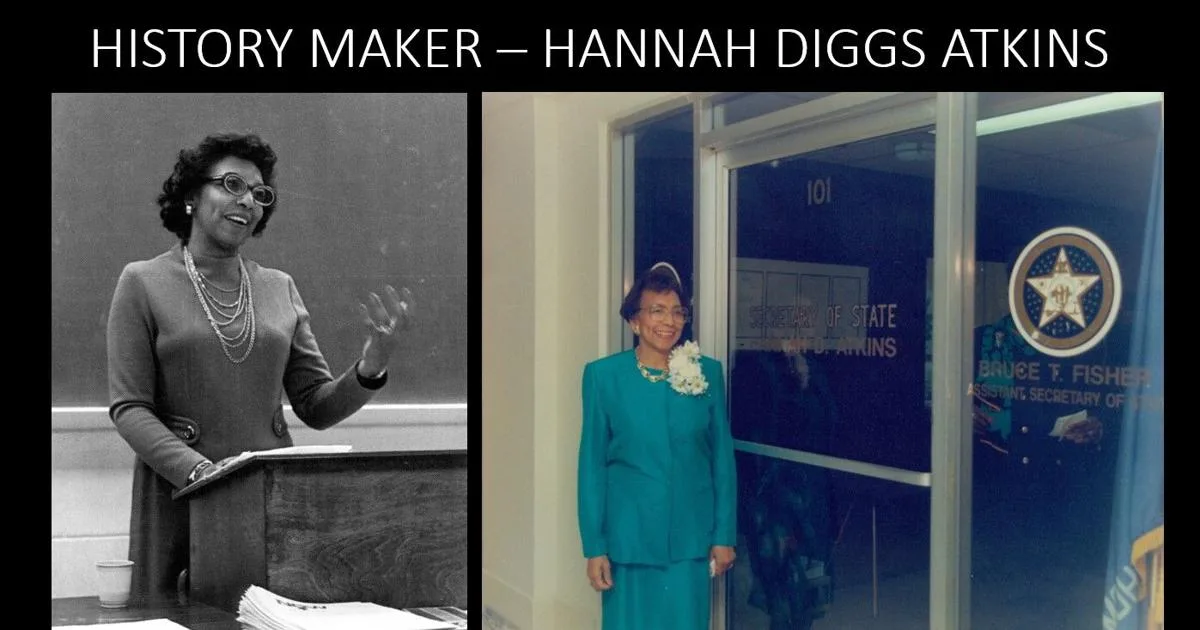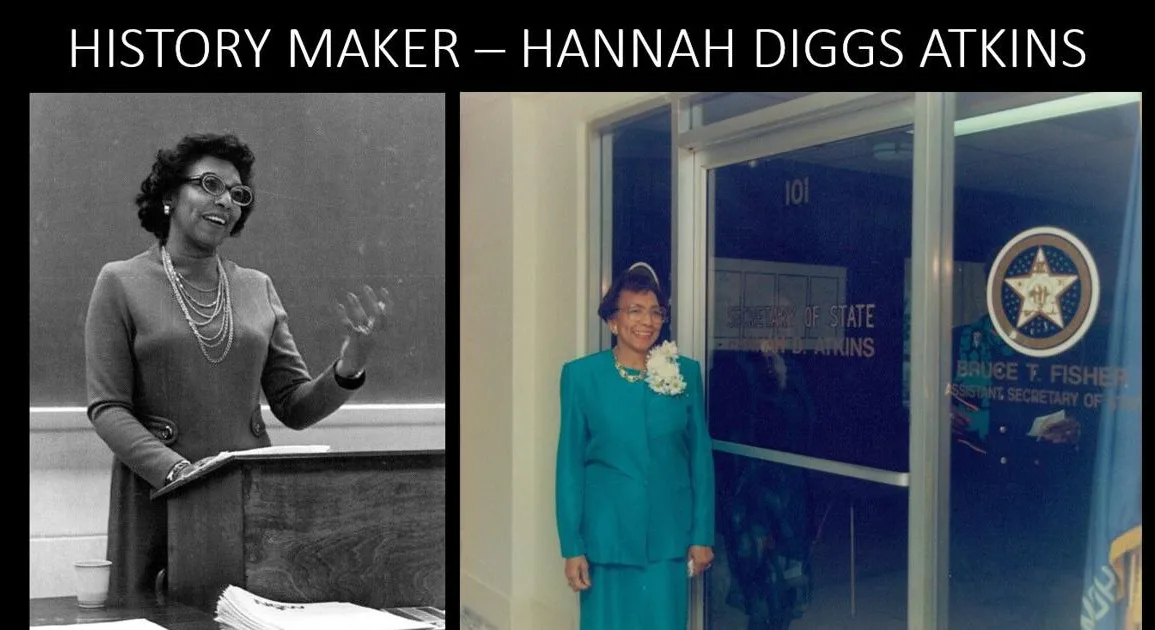
Born: Nov 1, 1923, Winston-Salem
Died: June 17, 2010, Oklahoma City, Okla.
Known for: Being the first African American woman elected to the Oklahoma state legislature, a UN UNESCO delegate, founder of the Oklahoma Black Political Caucus, co-founder of the Oklahoma Chapter of the National Women’s Political Caucus, and officer in the American Civil Liberties Union, NAACP, National Association of Black Women Legislators, and member of the Oklahoma Advisory Committee to the U.S. Commission on Civil Rights
Hannah Diggs Atkins had never held public office when she overcame eight opponents in the primary and outperformed her Republican opponent by nearly 3-to-1 in the general election to become the first Black woman elected to the Oklahoma House of Representatives in 1968. She remained an active public servant for the next four decades.
People are also reading…
For six terms in the Oklahoma House, she focused on child welfare, improved public education, better health care, tax and mental health reform, civil rights, and fighting chronic unemployment especially among those in disadvantaged communities.
In 1979, President Jimmy Carter appointed her to the United Nations Educational, Scientific and Cultural Organization and tapped her to be a delegate to the U.N. in 1980. Later she served as assistant director of the state Department of Human Services and then as the Oklahoma Secretary of State.
Born the fifth of James and Mabel (Kennedy) Diggs’ six children, Hannah credited much of her drive to their encouragement. She frequently referenced her father’s challenge to his children to “commit yourself to something bigger than yourself, to something better than yourself, and to something more lasting than yourself.”
She graduated valedictorian at segregated Atkins High School in Winston-Salem and went on to earn bachelor’s degrees in French, biology and library sciences. She worked as a reporter for the “Negro Sunday page” of the Winston-Salem Journal and Sentinel newspaper, as a librarian at Fisk University, Nashville, and later at Winston-Salem’s Kimberly Park Elementary School. When her husband finished his residency at Kate Bitting Memorial Hospital in Winston-Salem, they moved to Oklahoma City where she continued her career in libraries and teaching until she won the House seat.
She also continued working for justice and civil rights, trying to ignite that same passion in younger generations.
“We must be agents of change, agents of positive change,” she told the 1981 graduating class at Winston-Salem State University. “Some of you are turned off by the idea of politics, but the most effective way to build the leverage we need is through the political process. Politics influences every aspect of our lives, so we must take the responsibility of influencing politics… You must continue to care so deeply that you will work and fight to change what is unjust and to eliminate whatever hurts any other human being.”
In 1990, Atkins’ extensive public service was recognized when the National Governors’ Association presented her their Award for Distinguished Service to State Government. Oklahoma Gov. Henry Bellmon, a Republican, nominated her, a Democrat, for the honor, saying, “People talk about a new woman emerging in politics. Hannah Diggs Atkins has been a leader for this new woman.”
In her acceptance speech, Atkins insisted the work remained unfinished. “As long as there are hate groups, as long as there are hungry children, homeless children, none of us have done enough.”
History Makers: A closer look at some people who helped shape our city
Each month, Winston-Salem Monthly spotlights a History Maker. This collection includes some of these local legends. Click on the image for a closer look or to download the PDF.


